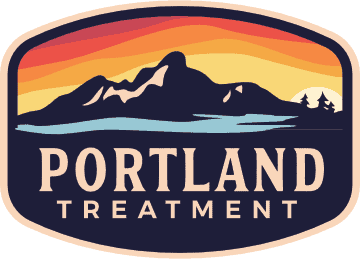Overview of Addiction Treatment Options in Topsham, Maine
Topsham, Maine, offers a variety of addiction treatment options designed to assist individuals struggling with substance use disorders. Among the notable facilities is Portland Treatment, a dedicated center focusing on drug rehab and addiction treatment in Maine. Their programs include Partial Hospitalization Programs (PHP) and Intensive Outpatient Programs (IOP), which cater to different levels of care depending on the individual’s needs. These programs are ideal for individuals seeking structured support while maintaining some aspects of their daily lives.
The PHP at Portland Treatment allows individuals to engage in intensive therapy sessions multiple times a week, offering a balance between rigorous treatment and personal responsibility. This program is particularly suited for those who require a higher level of support but do not need 24-hour medical supervision. In contrast, the IOP is designed for those who have completed a higher level of care or who have commitments that prevent them from participating in a full-time program. Both options provide critical therapeutic services aimed at addressing underlying mental health issues and promoting recovery.
Portland Treatment also offers mental health services in Maine, which can play a significant role in the recovery process. Many individuals battling addiction also experience co-occurring mental health disorders, making comprehensive treatment essential. By addressing both the addiction and mental health concerns, clients can develop resilience and coping strategies that are vital for long-term sobriety.
For those seeking support, Portland Treatment provides drug and alcohol detox referral services in Maine. While detox services are not provided on-site, the center can connect clients with appropriate facilities that offer detoxification support. This is a crucial step in the recovery process, as it prepares individuals for the next stage of treatment and sets a foundation for a successful transition into longer-term rehabilitation programs.
Key Features of Local Rehabilitation Facilities and Services
Portland Treatment emphasizes a client-centered approach to treatment, focusing on the individual needs of each person seeking help. The center employs various therapeutic modalities, including Cognitive Behavioral Therapy (CBT) and Dialectical Behavior Therapy (DBT), to address issues related to addiction and mental health in Maine. These evidence-based therapies help clients understand their thought patterns and behaviors, enabling them to make positive changes in their lives.
Group therapy sessions are another essential component of the treatment programs at Portland Treatment. These sessions foster a sense of community and allow individuals to connect with peers who share similar experiences. The therapeutic environment encourages open dialogue and mutual support, which can be instrumental in the recovery journey. Group therapy not only enhances accountability but also helps in building social skills that may have been impacted by addiction.
Individual therapy is also a vital aspect of the treatment process. One-on-one sessions allow clients to explore personal challenges and develop personalized coping strategies. This tailored approach ensures that each person’s unique circumstances and history are taken into account, enhancing the overall effectiveness of the treatment. The therapeutic relationship developed in these sessions can be crucial for sustained recovery.
Portland Treatment incorporates holistic treatments into their programs. While the term “holistic” can encompass various modalities, here it refers to practices that support emotional and physical well-being, such as mindfulness and stress-reduction techniques. These methods complement traditional therapies and provide clients with a well-rounded approach to their recovery, promoting overall mental health stability.
Success Rates and Support Networks in Topsham’s Programs
The success rates of addiction treatment programs can vary based on numerous factors, including the nature of the treatment and the individual’s commitment to recovery. At Portland Treatment, the focus is on creating a supportive environment that fosters resilience and self-empowerment among clients. By equipping individuals with the tools they need to navigate their recovery journey, the center aims to increase the likelihood of long-term success in overcoming addiction in Maine.
Support networks play a crucial role in the effectiveness of any addiction treatment program. At Portland Treatment, clients are encouraged to build connections with both counselors and fellow program participants. These relationships can provide ongoing encouragement and accountability, which are vital for sustaining recovery beyond the duration of the program. Aftercare planning is also emphasized, ensuring that clients have a roadmap for continued support once they complete their initial treatment.
Portland Treatment also recognizes the importance of family involvement in the recovery process. Family therapy sessions can help repair relationships that may have been strained due to addiction. By involving family members in therapy, clients can address underlying issues and improve communication, which is essential for a supportive home environment once treatment concludes.
Clients at Portland Treatment benefit from access to various resources after completing programs, which helps maintain their commitment to sobriety. Support groups and alumni networks provide ongoing opportunities for connection and shared experiences, reinforcing the importance of community in the recovery process. Individuals can find strength in knowing they are not alone in their journey, which contributes significantly to their long-term success.
If you or someone you know is struggling with addiction, Portland Treatment in Maine is ready to help. Their dedicated team focuses on providing the necessary tools and support to overcome substance use disorders. Contact Portland Treatment today to learn more about their programs, including PHP and IOP, and take the first step toward recovery. For immediate support, you can also reach out to the National Helpline at SAMHSA.
